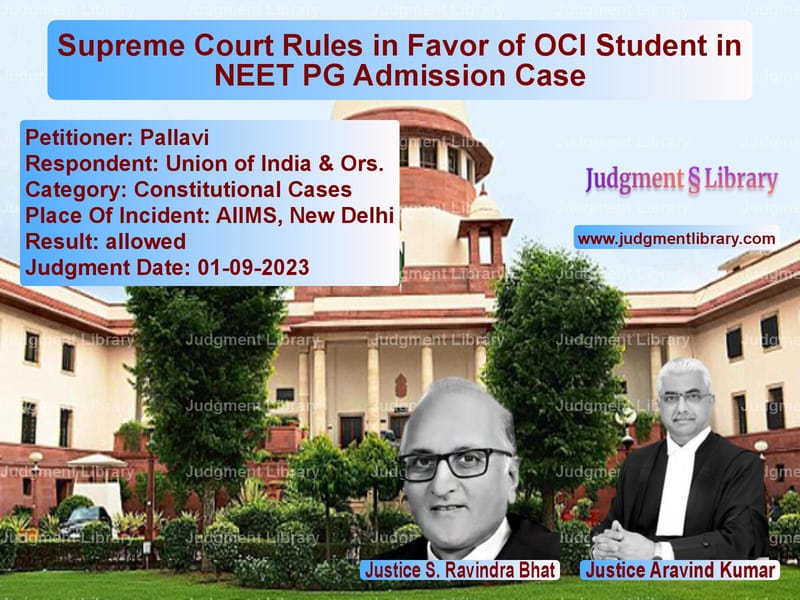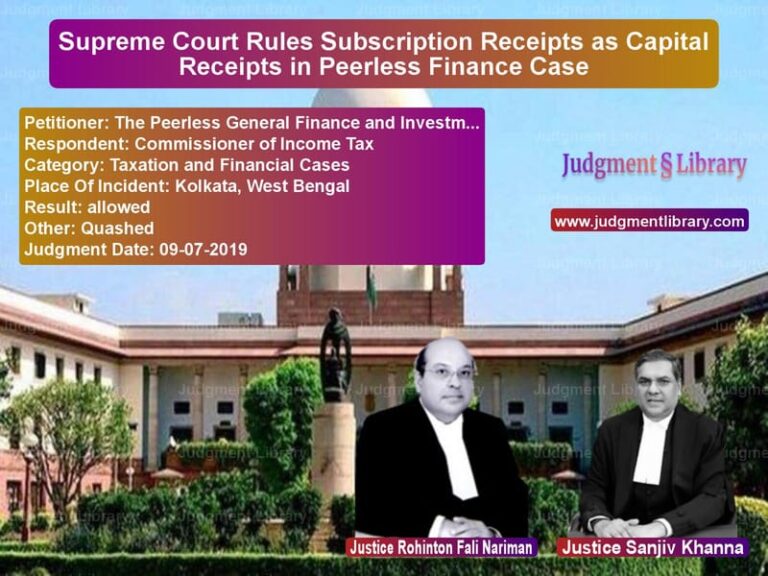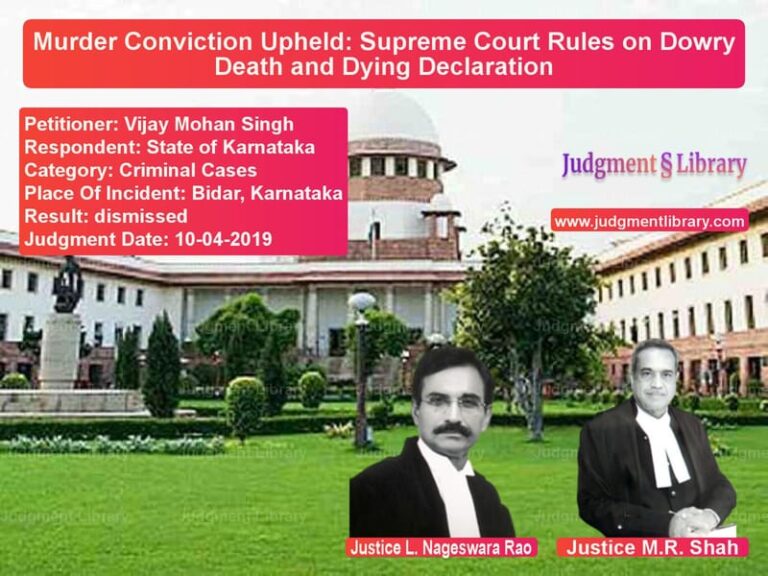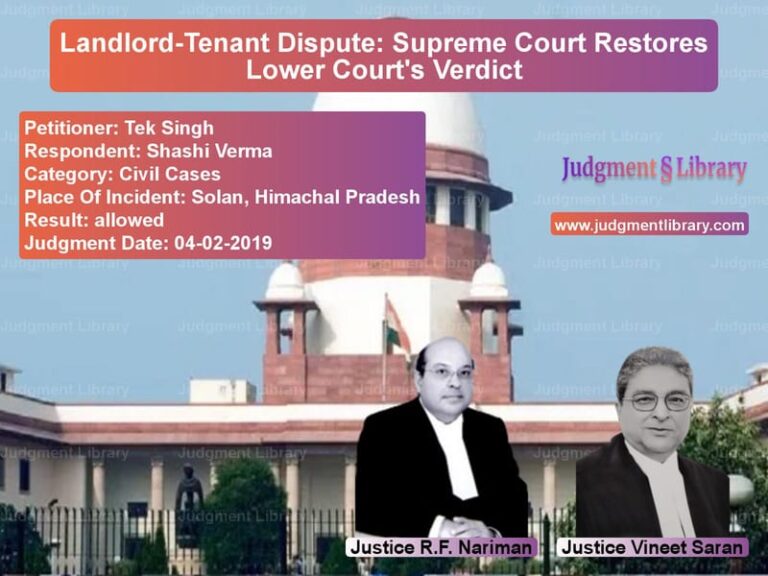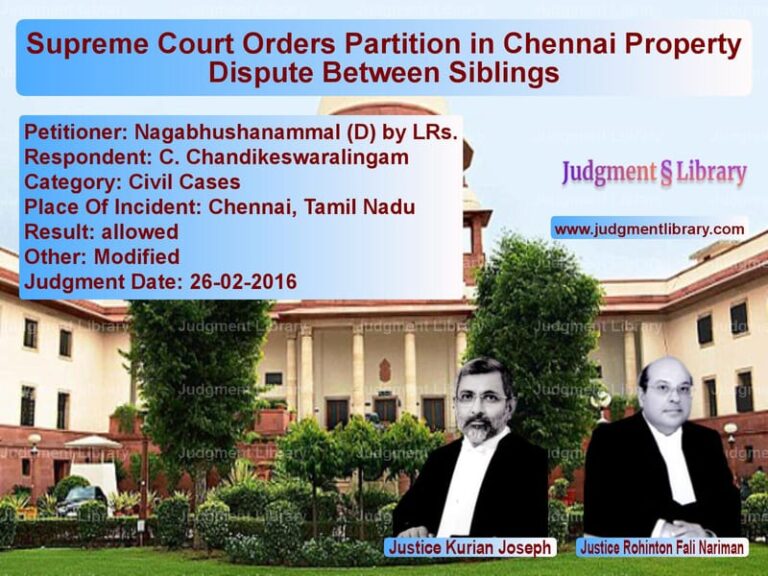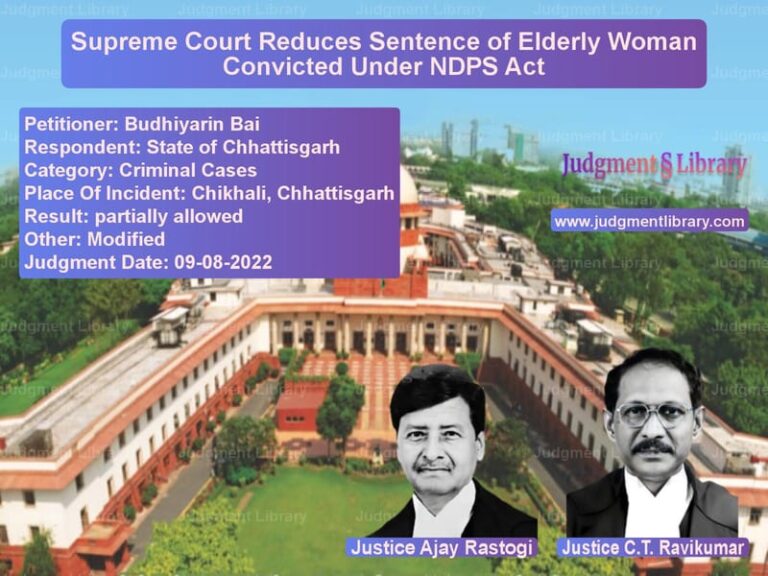Supreme Court Rules in Favor of OCI Student in NEET PG Admission Case
The Supreme Court of India recently ruled in favor of an Overseas Citizen of India (OCI) candidate, Pallavi vs. Union of India & Ors., in a crucial case related to medical admissions. The petitioner challenged the abrupt change in her admission status, which significantly impacted her chances of securing a postgraduate (PG) medical seat under the NEET PG examination. The Court ruled that the last-minute change in the candidate’s status was arbitrary and unfair, directing authorities to restore her eligibility under the appropriate category.
Background of the Case
The petitioner, Pallavi, is an OCI cardholder and a U.S. national born on 22 February 1999. She applied for admission to a PG medical course in India through the NEET PG and INI-CET/2023 entrance exams. She participated in the examination, secured an impressive 96.73 percentile, and was listed in the merit list under the OCI category.
However, despite clearing the examination and being provisionally qualified, her admission process was disrupted when AIIMS reclassified her as an “Indian National” just before the counseling round. This unexpected change severely affected her seat allocation, prompting her to seek relief from the Supreme Court.
Read also: https://judgmentlibrary.com/supreme-court-strengthens-protection-for-child-victims-under-pocso-act/
Eligibility Criteria and Government Guidelines
According to the admission prospectus, OCI candidates were allowed to apply against foreign national seats and were not required to obtain a No Objection Certificate (NOC). The relevant admission rules stated:
“Overseas Citizen of India (OCI): Overseas Citizen of India candidates can apply against Foreign National Seats. OCI candidates are not required to obtain NOC, however, must upload a scan copy of the OCI card on or before the specified date.”
The eligibility criteria further mentioned that OCI candidates would be treated on par with Non-Resident Indians (NRIs) for admission into medical institutions.
The Change in Admission Status
Despite these clear guidelines, the petitioner was notified on 19 June 2023—just before the first round of seat allocation—that she would no longer be considered under the OCI category but as an Indian national. This change was purportedly based on a Ministry of Home Affairs (MHA) notification dated 4 March 2021, which modified the admission rights of OCI students.
Read also: https://judgmentlibrary.com/supreme-court-directs-strict-implementation-of-right-to-information-act/
The notification stated:
“OCI cardholders shall be eligible for admission only against Non-Resident Indian (NRI) or supernumerary seats and shall not be eligible for seats reserved exclusively for Indian citizens.”
Due to this change, the petitioner was forced to participate in the counseling process under protest, knowing that her chances of securing a PG seat were significantly reduced.
Arguments by the Petitioner
The petitioner, represented by Senior Counsel Vinay Navare, argued:
- She had applied for the exam and completed the admission process under the OCI category based on prevailing rules.
- The sudden change in her status after the declaration of results was arbitrary, unfair, and violated her fundamental rights under Article 14 (Right to Equality).
- She had based her entire academic trajectory on the previously granted rights of OCI cardholders, and the retrospective application of the 2021 notification was unjust.
- The Supreme Court had already ruled in Anushka Rengunthwar & Ors. vs. Union of India & Ors. that the MHA’s 2021 notification could only be applied prospectively and could not negatively impact students who had planned their education based on previous policies.
Arguments by the Respondents
The Union of India, AIIMS, and other respondents contended:
- The 2021 notification explicitly stated that OCI cardholders could not be considered for Indian citizen seats.
- The Supreme Court’s decision in Anushka Rengunthwar’s case upheld the notification’s validity.
- The petitioner’s admission application did not clarify that she was an OCI cardholder before 2021, which could have influenced her eligibility.
Supreme Court’s Observations and Ruling
The Supreme Court, in its analysis, reiterated the findings of its previous ruling in the Anushka Rengunthwar case. It emphasized that while the government had the right to modify OCI privileges, such changes could not be applied retrospectively to candidates who had already secured educational rights.
The Court ruled:
“The rejection of her candidature at this stage is not supportable in law. She is consequently directed to be considered in remaining counseling rounds by AIIMS and all participating institutions for PG medical seats.”
The judgment further clarified that OCI candidates who had secured their cards before 4 March 2021 were entitled to continue availing benefits available at the time of their registration.
Implications of the Judgment
This ruling has broad implications for OCI students seeking admission to professional courses in India. Some key takeaways include:
- Protection of Pre-Existing Rights: The judgment ensures that policy changes cannot arbitrarily strip away previously granted rights.
- Fairness in Admissions: The Court upheld the principle that admissions must be conducted transparently, and changes cannot be imposed mid-process.
- Guidance for Future Cases: OCI students who obtained their cards before 2021 can continue applying under previously available categories.
Conclusion
The Supreme Court’s ruling in favor of Pallavi sets a crucial precedent in protecting the rights of OCI students in India. By ensuring that government notifications do not retroactively affect candidates who have built their academic careers based on past policies, the Court has reinforced the importance of fair treatment and legal consistency in educational admissions.
The decision provides much-needed clarity on OCI admissions, ensuring that students who had structured their education under earlier policies are not unfairly disadvantaged due to sudden regulatory changes.
Petitioner Name: Pallavi.Respondent Name: Union of India & Ors..Judgment By: Justice S. Ravindra Bhat, Justice Aravind Kumar.Place Of Incident: AIIMS, New Delhi.Judgment Date: 01-09-2023.
Don’t miss out on the full details! Download the complete judgment in PDF format below and gain valuable insights instantly!
Download Judgment: pallavi-vs-union-of-india-&-ors-supreme-court-of-india-judgment-dated-01-09-2023.pdf
Directly Download Judgment: Directly download this Judgment
See all petitions in Fundamental Rights
See all petitions in Public Interest Litigation
See all petitions in Judgment by S Ravindra Bhat
See all petitions in Judgment by Aravind Kumar
See all petitions in allowed
See all petitions in supreme court of India judgments September 2023
See all petitions in 2023 judgments
See all posts in Constitutional Cases Category
See all allowed petitions in Constitutional Cases Category
See all Dismissed petitions in Constitutional Cases Category
See all partially allowed petitions in Constitutional Cases Category

